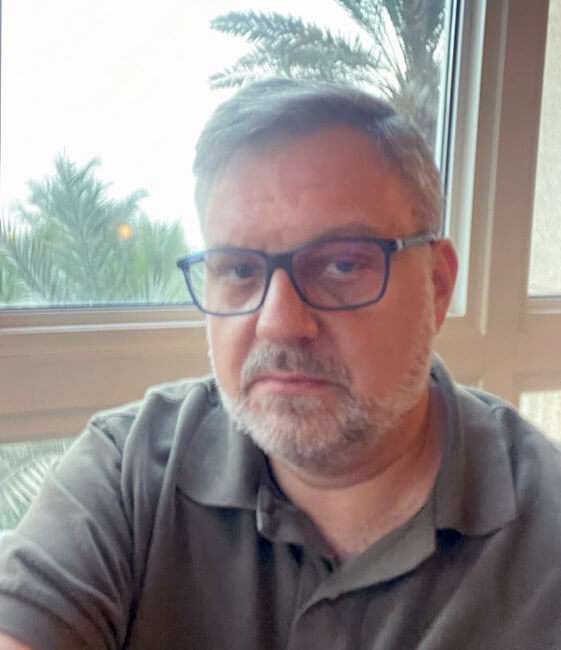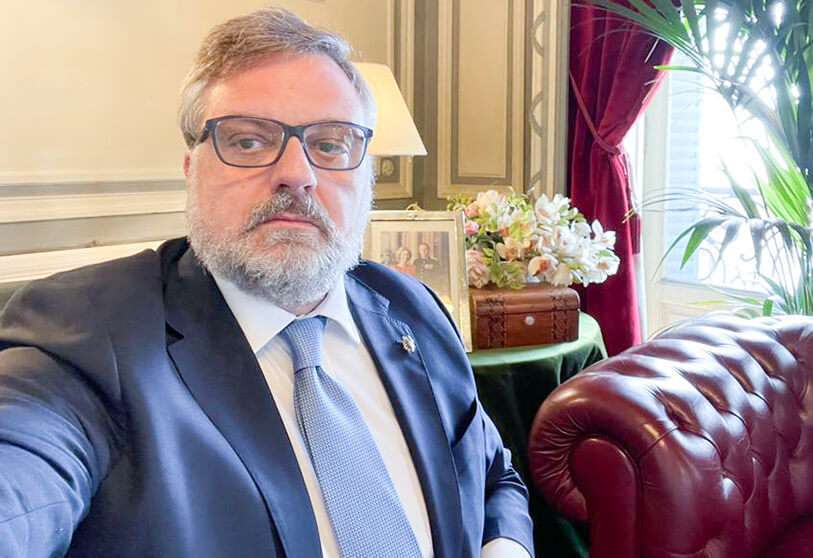Gustavo de Arístegui: "La estabilidad del Sahel es fundamental para Marruecos"

In the latest edition of 'De cara al mundo', the radio programme of Atalayar, on Onda Madrid, we had the participation of Gustavo de Arístegui, diplomat and international analyst, who spoke about the letter that Pedro Sánchez sent to the King of Morocco, Mohamed VI, in which Spain's change of position on Western Sahara is reflected. Arístegui told the programme's microphones that "the security of the Maghreb is the security of Spain".
Can Pedro Sánchez's decision be described as positive?
Let's put it in passive, what has happened over the last forty-six years, Spain's decision, and that of so many others, to fester over the problem has not borne any fruit, it has not fixed things, nor has it unblocked the situation, nor has it improved the living conditions of the eighty thousand Saharawis in the Tindouf camps. It is hard to believe that persevering with a situation that has brought nothing positive for the last 47 years was the most logical thing to do. After forty-seven years of perfect inoperativeness, we analyse the situation and we see that there has also been an obvious geopolitical evolution, because policies and measures had to be adopted to deal with the new circumstances. Moreover, the war in Ukraine has served as a catalyst for the global geopolitical situation, further accentuating the conditions that called for a change in the public stance, and in private it is common knowledge that much of the content of the letter has been said at high-level meetings. As a career diplomat, not a politician, I know that diplomatic language is always surrounded by euphemisms to try to make something that would otherwise be unacceptable to either side acceptable, which is why, at the 2008 high-level meetings, with President José Luis Rodríguez Zapatero, and those of 2015, with President Mariano Rajoy, the euphemism "Moroccan efforts" was used to refer to the autonomy plan without mentioning it, that is to say, that now we want to hide behind words and semantics seems frankly ridiculous to me.

Spain changes its position, a diplomatic and political crisis is overcome, but Morocco must provide guarantees on Ceuta and Melilla, territorial waters and migration...
When a government makes a good decision on a matter of state policy, even if it has made a mistake in the form, it is necessary to analyse the substance and not just the form. We truly believe that the President of the Government's gesture of going to Ceuta and Melilla to reaffirm the undeniable, non-negotiable, unrenounceable and always defensible Spanishness of Ceuta, Melilla and the Canary Islands by the necessary means seems to me to be a wise move. To criticise this seems to me to be an error of analysis, of perception and even of patriotism; on the other hand, we all know that the claims are going to be more formal than anything else, they cannot be compared. I would also like to clearly underline that when a parallel is made between the situation in the Sahara and Ceuta and Melilla, those who are using this argument are the ones who are equating the two, you cannot use the argument that you cannot give in on one thing because you give in on the other because you can automatically infer unequivocally that whoever says this is making a parallel between the two situations when they are completely and radically different. Seeking a viable, reasonable, credible and mutually acceptable solution - no one has said that this will be done outside the UN framework - does not in any way imply that the other has anything to do with it or that it is a bargaining chip. That said, a government should be behind closed doors and with its interlocutors and politely say that Ceuta, Melilla and the Canary Islands are untouchable and non-negotiable and that international waters are what the Jamaica Convention of 1980 dictates and that the law and international law cannot be changed.
Undoubtedly, the international context, the Russian invasion of Ukraine, has played a role. The presence of the US Under-Secretary of State, Wendy Sherman, in Madrid, Rabat and then in Algeria, in addition to the US Secretary of State who travelled to Rabat before the Spanish Minister Albares did, gives us confidence that the agreement that has been reached has guarantees because it has the involvement of the United States.
I would like to do a slightly diplomatic exercise: if you look at the list of countries that voted against the resolution condemning Russia the first time and yesterday's resolution, you will see the countries that support the Polisario, which as we have said is not the only representative of the Saharawi people but there are many more Saharawis in Western Sahara than in the Tindouf camps and therefore the Polisario only represents a part of them, but it is very interesting to see that all those who have opposed the resolutions condemning Russia in large part are precisely the countries that support the Polisario ... one has to ask oneself why this is the case.
Moreover, it is a clear message to Russia because Algeria has always considered itself an ally of Russia and the option of an exit to the Atlantic has always been rejected by the United States.
Consider what a nightmare for world geopolitics a Russian base in the Atlantic would be for world peace and stability. One of the reasons why the Cold War was won, despite the fact that Russia had the ports of the six Baltic republics that were then part of the Soviet Union, the freezing of the port of Murmansk and the fact that the Baltic is controlled by Germany, Denmark, Finland and Sweden, which although neutral are extraordinarily wary of Russian excesses, Norway, a member of the Atlantic Alliance, the United Kingdom, France, and then you go out into the open Atlantic. In the case of the Black Sea, it has to pass through a NATO ally that controls the Bosphorus Strait, the Sea of Marmara and the Dardanelles Strait to reach the eastern Mediterranean where there are Turkey and Greece, both members of the Atlantic Alliance, then Italy, France, Spain and the United Kingdom. For a Russian ship or submarine to get out, they were heavily controlled and there were very few that could get out of the Black Sea without being detected or knowing where they were. Crossing the Strait submerged can be done, but it takes a lot of experience and none of this could be done if the Russians had a base in the Sahara. Imagine that a warship could be put on the coast of the United States in two and a half days... we are absolutely crazy, can we imagine that Russian missile submarines could emerge submerged from a well-built naval air base in a city like Dakhla, please...

Unthinkable, and I would also extend this margin of reference to the Russian interference that is taking place in the Sahel, in a country like Mali, with mercenaries from the Wagner group, where French troops have even been forced to leave, the stability of the Sahel is our stability.
The stability of the Sahel is fundamental for Morocco, for the Maghreb, for Mauritania and for sub-Saharan Africa, not only in the north, we are already seeing that terrorist groups are increasingly involved with each other, organised crime ends up being allied with each other, traffickers in human beings, drugs, arms... end up being the same as those in the kidnapping industry, or the jihadists, many are involved in the same things at the same time. Recruitment is done indiscriminately, and it is well known that this recruitment also takes place among young Sahrawis who are idle, well paid and have been indoctrinated, this is the sad reality that takes place in the Sahel. Let us think for a moment what it means for this group of organised criminals to have a direct exit to the Atlantic, without any obstacle or control, the first thing they find is the Canary Islands, which is Spain, therefore, our security is at stake. The first to be interested in the security, stability and control of this region must be the Spanish.
I say that the thousands of Saharawis living in Tindouf win because they have a glimpse of a solution, or do you think that the United Nations can be asked to reconvene the Geneva table to resolve the conflict?
All talk is good, unfortunately the positions have been entrenched in the past, but let's go back to mapping out who is in favour of one thing and who is in favour of the other. Those in favour of a comprehensive autonomy plan within the UN framework are: United States, France, United Kingdom, Germany, much of the European Union, the EU institutions, much of Africa, the overwhelming majority of Latin America, and those against: Cuba, Venezuela, Iran, Nicaragua, Bolivia, North Korea, etc. ... so who do we want to be with?
I was there last year, and I can tell you that the Saharawis are waiting for the Spaniards with open arms in Dakhla, Laayoune, and throughout the region.
As a final thought, I would like to say that we cannot forget the central role that Algeria has played in the stability of the Maghreb, the sacrifices made by hundreds of thousands of Algerians in the fight against jihadism. This is a debt of honour that we all owe them and that we can never forget.








